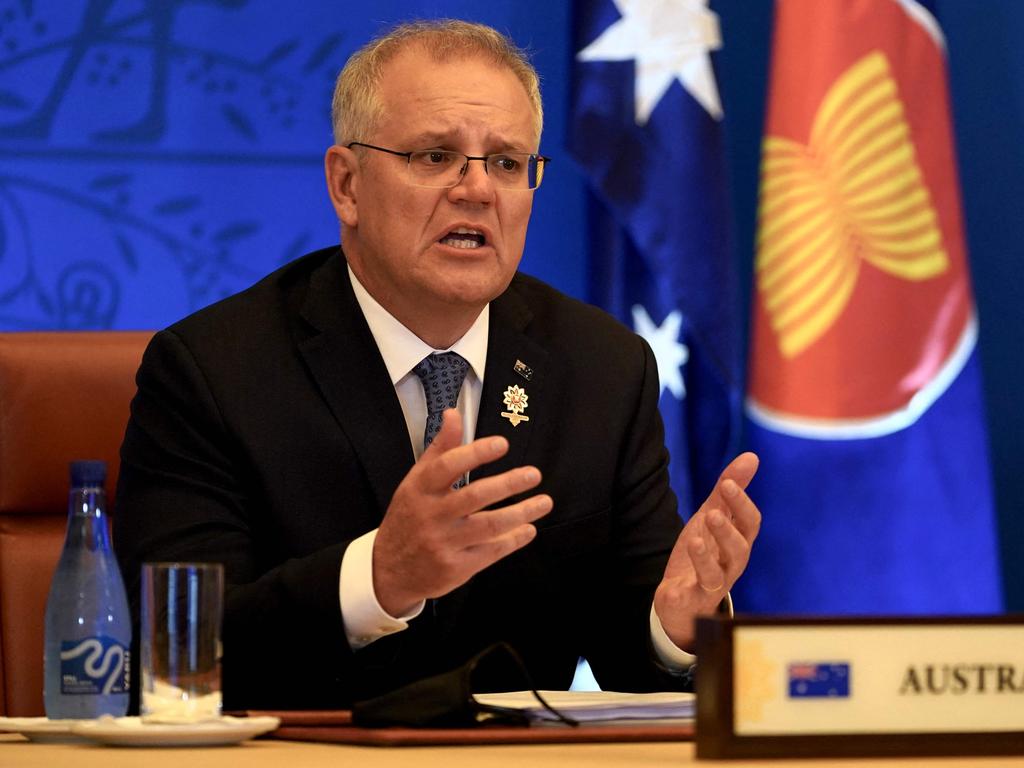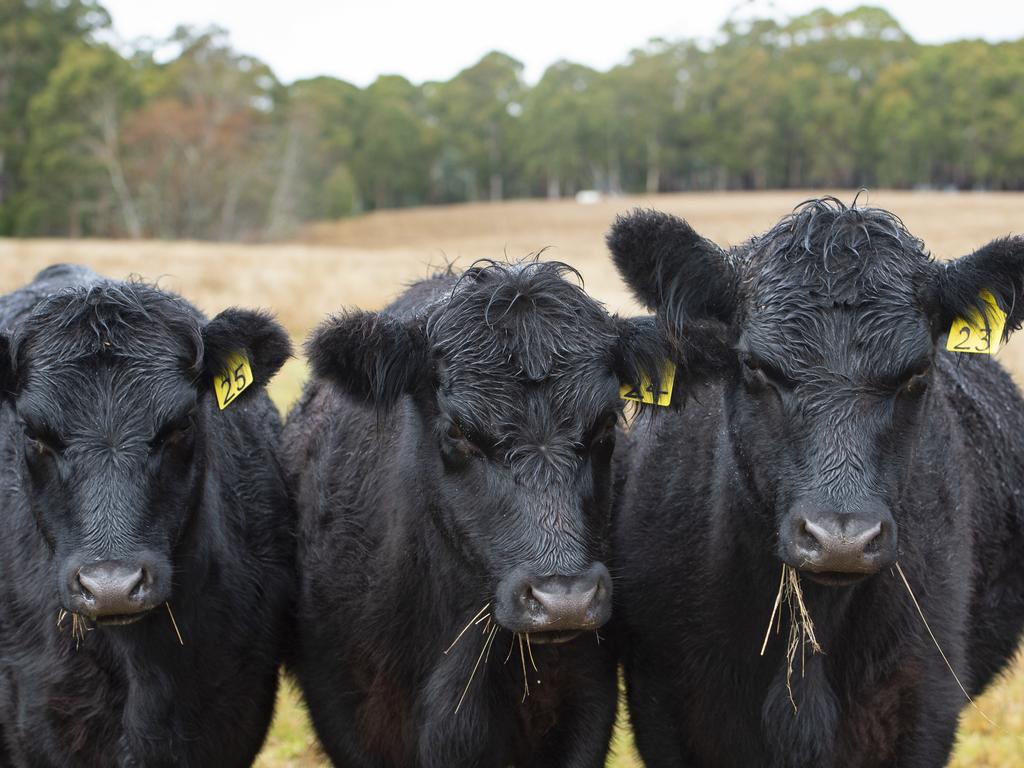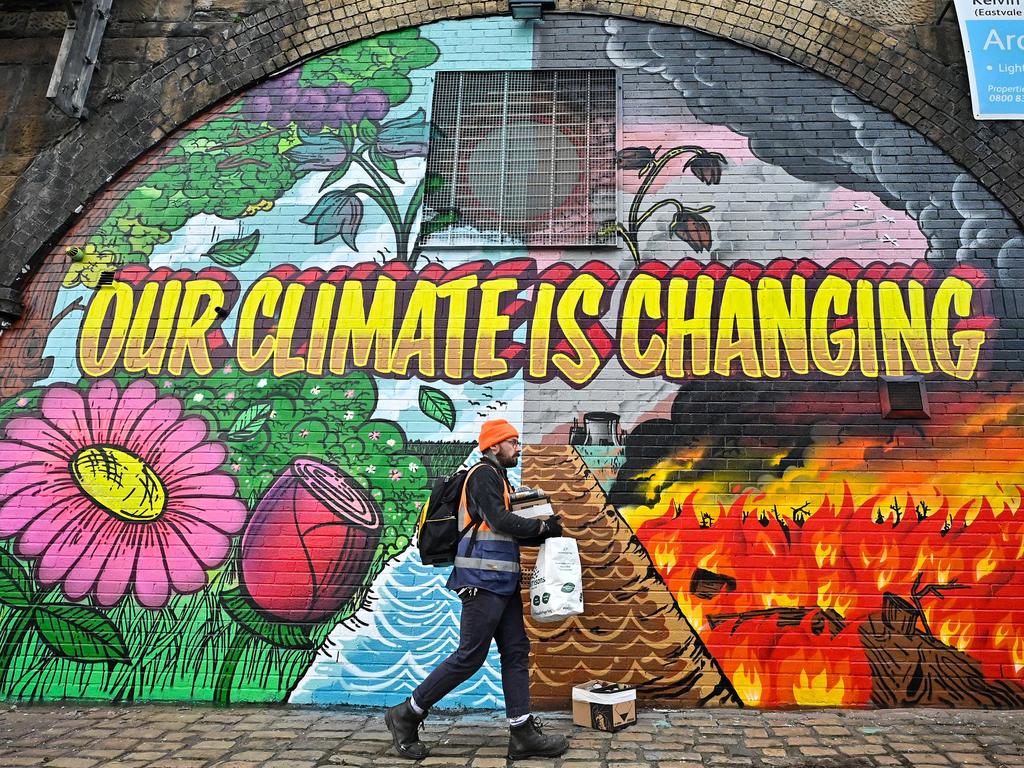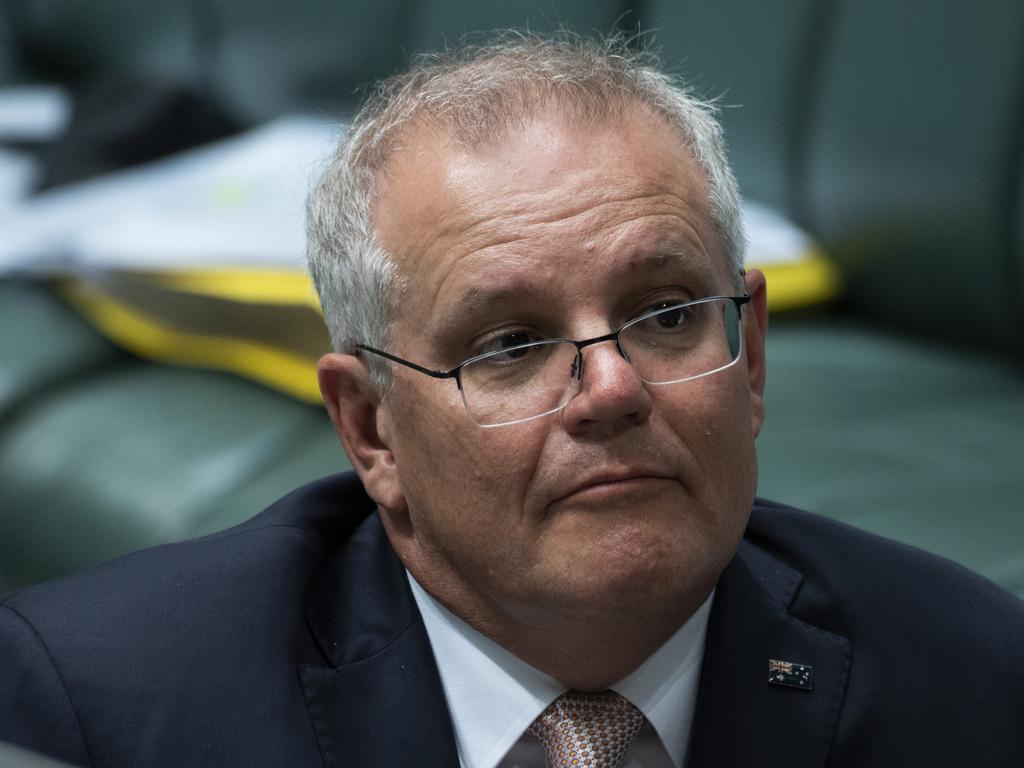Let’s get real: net zero is all about the declaration


Morrison should never release the economic modelling behind this plan. It would be better to submit the modelling for the Miles Franklin award for Australian fiction. Modelling is the alchemy of our time, purporting to turn lead into gold. The longer the time frame, the greater the magic.
Morrison’s declaration earned him praise from British Prime Minister Boris Johnson, just as, earlier, Australia’s efforts were praised by US House of Representatives Speaker Nancy Pelosi.
Johnson and US President Joe Biden don’t really think Australia is going to completely decarbonise. They mainly want a Glasgow media triumph.
Johnson and Biden also hope Australia will spend $150bn, give or take, on their submarines, so they have every reason to help Morrison politically. Wednesday’s shocking Defence Senate Estimates testimony demonstrated we won’t get our first nuclear sub before 2040, there’s no prospect of leasing a boat early, and the whole project is “high risk”. AUKUS was really about symbolism. Immunity from criticism at COP 26 is the real AUKUS payoff.
Dolefully, Western governments have realised that announcements have bigger political benefits than actual delivery. Canada’s Justin Trudeau and New Zealand’s Jacinda Ardern are woke heroes. Both countries have ostensibly more ambitious climate targets than Australia. Yet since 2005, New Zealand has reduced emissions by 5 per cent and Canada by 1 per cent, compared with Australia’s 20 per cent. It’s not performance that counts, but announcement.
The Morrison plan to get 100 per cent net emissions reduction by 2050 is both completely implausible and the most realistic option available. It gets to 100 per cent reduction through 20 per cent so far, 40 per cent from the previously announced Technology Roadmap, 15 per cent from global technological trends, and 10 to 20 per cent from domestic and international offsets or carbon credits, which we could buy, and the rest from further technology breakthroughs.
On current technology, that’s completely implausible. But the government is right to argue there will be technology breakthroughs. Of course, we don’t know when or what they will be.
The British government estimates that net zero will cost the taxpayer more than $90bn a year. Britain is an infinitely easier economy to decarbonise than Australia, so the costs must be much greater for us. Morrison doesn’t pretend there are no costs. He cites the subsidies, regulatory arrangements, climate funds and all the rest Australia has embraced, which already add up to many billions of dollars. What will the costs be for Australia, and other countries, in the future?
There are only three things that can happen: new technology such as green hydrogen or carbon capture and storage comes through eventually and we massively reduce emissions at a reasonable cost; we massively reduce emissions with essentially existing technology and become much poorer as a result; or we don’t quite reduce emissions as much as we hope.
These are big political issues only in rich, developed countries. China is responsible for nearly 30 per cent of global emissions. Its recent energy shortage, and the record high price for coal, led it, as Glasgow approaches, to intensify coal production and its schedule for new coal-fired power stations.
Beijing says it won’t finance new coal-fired power stations beyond China’s borders, though that commitment is vaguer than it sounds, and it has promised to reduce coal as a proportion of its energy grid by 2030. But essentially it has made no significant new commitments for Glasgow. Nor have Indonesia and India.
Under the COP process, developing countries are not required to reduce their emissions, merely to take actions that put them on a path to reduction eventually. Cumulatively, over the years, I’ve spent many months in Indonesia and I’ve never seen climate change figure strongly in a national debate, much less an election. Local environmental issues can be very powerful – unbreathable air because of motor cars, undrinkable water, or damage to a specific locality because of a badly run mine. But Jakarta operates fuel subsidies. It pays people to burn carbon, and has a big pipeline of coal-fired power stations.
The same with India, only more so. The developing countries argue they didn’t cause the problem of greenhouse gases historically so they shouldn’t have to pay the clean-up bill. But the situation is much more complicated. Even on historical emissions, China outstrips all developed nations bar the US. Emissions are declining in virtually every developed nation and increasing in every developing nation. The growth in global emissions is coming from developing nations.
Developing nations are happy to install lots of renewable energy, especially if they can get some international aid to help, but they won’t forgo coal and other fossil fuels. Nearly a billion people live without electricity, which they all want. Despite what renewable energy spruikers say, the cheapest energy for them is coal. Talking them, or even subsidising them, out of coal is difficult.
China and Russia, numbers one and four of global emitters, won’t be at Glasgow at heads of government level. A lot of other HOGS will skip Glasgow.
Morrison routinely tells one critical truth on climate policies. The developing world holds the key to emissions reductions and it will never embrace a low-emissions trajectory until the price of low emissions technology is roughly comparable to the price of high-emissions technology.
Australia’s debate is drenched in unreality. If renewables were really cheaper than coal, China, for example, would not install one more coal-fired power station.
Renewables depend on highly expensive subsidies and regulations, which make their installation and use more expensive than fossil fuels.
Even Western Europe, which has already exported much of its heavy industry to China, cannot get anywhere near net zero and is in the grip, right now, of an energy crisis brought about by too heavy a reliance on renewables.
COP26 will not raise the $130bn in aid finance the developed world allegedly needs to pay the developing world every year; it won’t sort out a fraud-proof method of trading in carbon offsets; it won’t end the use of coal; it won’t secure the replacement of regular cars with electric cars; and it won’t get anything like the concrete pledges it says it needs on greenhouse gas reductions. It will, however, make some real progress on all these matters, plus more research money, and that’s all progress worth making.
But it will surely succeed in producing a ringing declaration.






Scott Morrison has done as well as anyone could reasonably expect with his strategy for reaching net-zero emissions by 2050. He has joined the global consensus in two critical ways. First, he has a declaratory target that aligns with most developed nations. Second, and most unusually for Australia, like other nations his declaratory target has little chance of actually producing net-zero emissions but sensibly imposes the minimum costs in the attempt.